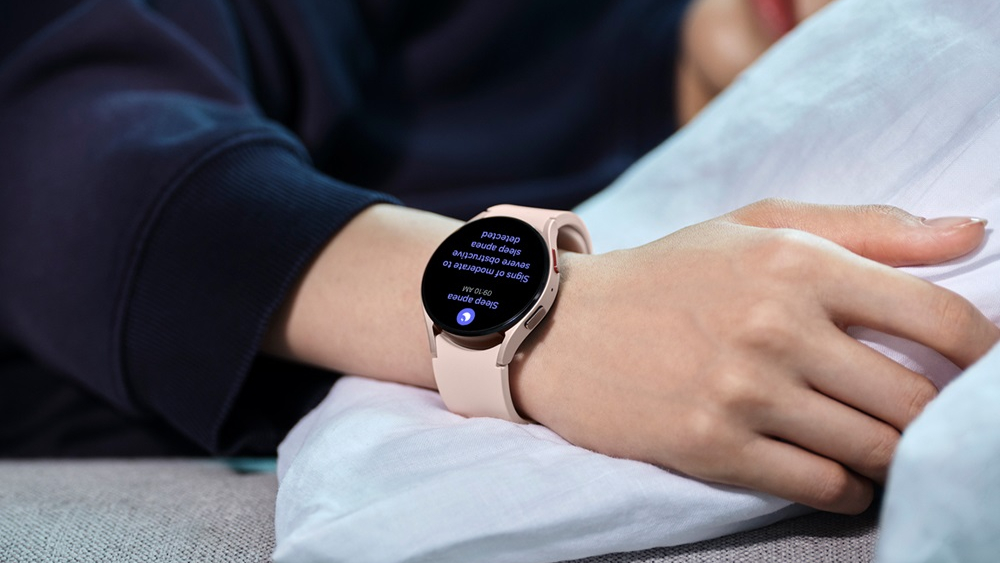Samsung's Galaxy Watch sleep apnea detection could get a big future boost from AI
With a little help from Stanford

- Some Samsung Galaxy Watch models offer sleep apnea detection
- The company is partnering with Stanford University to research more innovation in the sector
- It hopes to use AI to go beyond detection and develop sleep apnea management technology
Samsung has announced ambitious plans to take the sleep apnea features of its Galaxy Watch range beyond detection, possibly using AI to one day power sleep apnea management.
Announced on April 8, Samsung has partnered with Stanford University and Stanford Medicine to conduct a research project into "an innovative health solution based on Samsung's obstructive sleep apnea feature."
Samsung says the study is designed "to explore potential ways to further enhance Samsung’s Sleep Apnea feature to better support sleep health through timely interventions."
According to Samsung, the company wants to move beyond detection, the current functionality offered by devices like the Samsung Galaxy Watch Ultra and Galaxy Watch 7, and toward technology that can help users manage the condition.
Samsung isn't sleeping on sleep apnea
Perhaps most excitingly, Samsung specifically mentions AI technology, which it hopes to leverage in this pursuit, "empowering users with the best possible sleep tools to improve their health".
Samsung also noted that its sleep apnea feature was recently certified in Brazil and will roll out to the country in April to bring the total number of supported territories to 29.
The feature is designed to help spot and detect sleep apnea earlier to prevent long-term complications, a noble goal shared by Apple, which added sleep apnea detection to its best Apple Watch models last year.
Get daily insight, inspiration and deals in your inbox
Sign up for breaking news, reviews, opinion, top tech deals, and more.
According to estimates, sleep apnea affects more than one billion people worldwide, mostly undetected. Sleep apnea is a condition where the body briefly stops breathing during sleep, cutting off oxygen to the body. Undiagnosed, it can cause more significant health complications such as hypertension, Type 2 diabetes, and cardiac issues.
It sounds like Samsung's ambitions extend beyond mere detection, with future sights set clearly on monitoring the condition or perhaps even preventing it in the first place. In more immediate Galaxy Watch news, we're expecting a new Galaxy Watch 8 and possibly a classic model to debut sometime this summer.
You may also like

Stephen Warwick is TechRadar's Fitness & Wearables writer with nearly a decade of experience covering technology, including five years as the News Editor of iMore. He's a keen fitness enthusiast and is never far from the local gym, Apple Watch at the ready, to record his latest workout. Stephen has experience writing about every facet of technology including products, services, hardware, and software. He's covered breaking news and developing stories regarding supply chains, patents and litigation, competition, politics and lobbying, the environment, and more. He's conducted interviews with industry experts in a range of fields including finance, litigation, security, and more. Outside of work, he's a massive tech and history buff with a passion for Rome Total War, reading, and music.
You must confirm your public display name before commenting
Please logout and then login again, you will then be prompted to enter your display name.